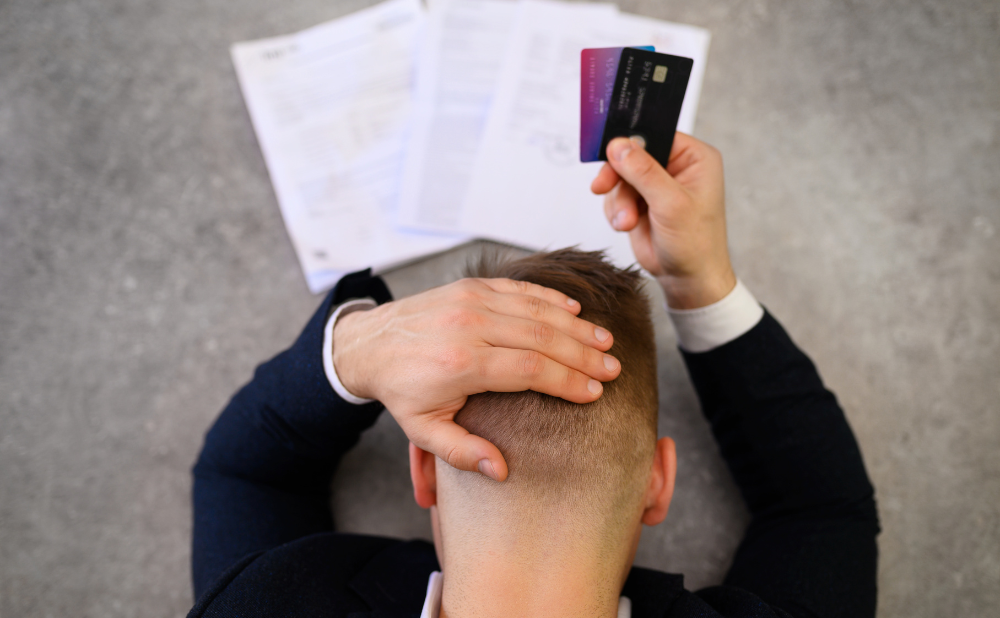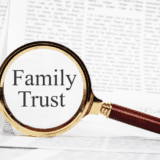Credit card debt can quickly become a source of stress and confusion. As balances rise and collection efforts intensify, many people begin to wonder how best to respond. One question that often surfaces is “Do I Need Help From A Lawyer for Credit Card Debt?” Understanding when legal assistance is useful, and what it actually involves, is a helpful first step toward regaining control.
Across the United States, credit card debt is a widespread issue. Thousands of lawsuits are filed each year over unpaid balances, and aggressive collection tactics can make the situation feel even more difficult. If you are dealing with persistent calls, legal threats, or financial strain, you are not alone, and you do have options.
This article explores the question “Do I Need Help From A Lawyer for Credit Card Debt?” by outlining situations where legal support may be beneficial, as well as what to expect if you choose to consult an attorney.
Understanding Your Rights in Credit Card Debt Collection
Before deciding if a lawyer is needed, you must understand your rights. The Fair Debt Collection Practices Act (FDCPA) offers protections against abusive debt collection practices. This federal law limits what debt collectors can say or do to collect a debt. These rights are specifically crafted and protect people like you.
Debt collectors must provide specific information about the debt they’re trying to collect. According to the Consumer Financial Protection Bureau (CFPB) , a debt collector must tell you:
- The name of the creditor.
- The amount of the debt.
- Your right to dispute the debt.
- Your right to request the name and address of the original creditor.
Understanding your rights is essential when dealing with debt collectors, whether or not you choose to hire a lawyer. It empowers you to take control of the process and confidently determine your next steps.
When Do I Need Help From a Lawyer for Credit Card Debt?
While a lawyer isn’t always needed for credit card debt, legal help can be invaluable in some situations. The following are some scenarios when hiring an attorney could be beneficial:
1. You’re Being Sued by a Creditor
If you’ve been served with a lawsuit, it’s important to consider legal assistance. The CFPB recommends responding to debt collection lawsuits, even if you believe the debt is invalid or too old to collect. Ignoring the lawsuit can lead to a default judgment, which may result in wage garnishment or asset seizure.
2. You’re Facing Wage Garnishment
When a creditor obtains a judgment and threatens wage garnishment, an attorney can help protect your income. They may negotiate with the creditor on your behalf or file a claim of exemption to safeguard a portion of your wages. This legal support can provide much-needed financial relief and flexibility.
3. You’re Dealing with Multiple Creditors
Managing debt from multiple creditors can quickly become overwhelming. A lawyer can help you develop a strategic plan to address all your obligations and negotiate more favorable terms. Legal guidance ensures you’re not navigating complex debt issues alone.
4. You’re Considering Bankruptcy
If your debt feels unmanageable, bankruptcy may be a viable option. It’s a serious decision with long-term implications, so consulting a bankruptcy attorney is essential. They can evaluate your situation, explain your options, and guide you through the process from start to finish.
The Benefits of Legal Representation in Credit Card Debt Cases
While less than 10% of defendants in debt collection lawsuits have legal counsel , having a lawyer can improve your chances. Here’s why legal assistance is helpful:
1. Knowledge of the Law
Attorneys who focus on credit card debt have a deep understanding of debt collection laws. They can spot illegal or unfair practices and use that knowledge to protect your rights. Dealing with credit card debt can be stressful, but having someone who knows the law on your side can make a big difference.
2. Negotiation Skills
Experienced lawyers can negotiate with creditors. They may be able to settle your debt for less than you owe. Lawyers can also arrange a manageable payment plan, something to note when trying to work with creditors.
3. Court Representation
Having a lawyer is crucial if your case goes to court. They can present your case effectively. Lawyers can challenge unfair claims made by the creditor. Hiring a legal professional could greatly benefit you if your case is taken to court. There are a variety of different reasons to consider hiring legal counsel, and one of the most common is due to court.
4. Peace of Mind
Debt can cause a lot of stress. Having someone handle your case offers peace of mind. It lets you focus on other aspects of your life. Legal representation will ease the stress of working through your credit card debt.
How the Legal Process Works for Credit Card Debt
Having credit card debt troubles can seem scary. Understanding the steps can make it less so, however. Here’s a simple breakdown of what to expect if your debt has gotten to the point that you’ve been missing payments.
1. The Creditor Sues
First, the credit card company or a debt buyer might sue you. This usually happens after many missed payments. You’ll get official court papers called a summons and complaint. These papers tell you that you’re being sued and why.
2. Respond to the Lawsuit
Next, you need to respond. You have a limited time to file an answer with the court. This answer tells the court your side of the story. Ignoring the lawsuit means the creditor automatically wins. This is called a default judgment. Acredit card debt attorney can help you draft your response.
3. Discovery Phase
Then, there’s the discovery phase. Both sides gather information. This can involve asking questions, called interrogatories. It can also mean requesting documents. This helps each side prepare their case.
4. Negotiation or Trial
After discovery, negotiation might happen. Your lawyer can talk to the creditor’s lawyer. They might agree on a payment plan or a lower amount. If no agreement is reached, the case goes to trial. At trial, both sides present their case to a judge or jury. Evidence and witnesses are presented. The judge or jury then makes a decision.
5. Judgment and Collection If the creditor wins, they get a judgment. This means the court says you owe the money. The creditor can then try to collect the debt. They might garnish your wages. They could also take money from your bank account. A lawyer can help you understand your options if this happens. You may need help from a lawyer for credit card debt at this point.
Alternatives to Hiring a Lawyer
Legal help can be beneficial, but it’s not always needed. If hiring an attorney isn’t right for you, consider these alternatives:
1. Credit Counseling
Non-profit credit counseling agencies advise on managing debt. They might also help you set up a debt management plan. If a credit counseling agency isn’t right for you, then consider looking into debt settlement companies.
2. Debt Settlement Companies
These companies negotiate with creditors to reduce your debt. Be cautious, as some engage in questionable practices. The CFPB and state attorneys general have taken action against debt relief enterprises. One was recently sued for allegedly swindling millions from struggling families. It is to use discretion when choosing a company like this.
3. Do-It-Yourself Negotiation
Try negotiating with creditors yourself. Some may agree to a lower settlement or a payment plan. When handling debt on your own, make sure you have a plan. Credit card debt can be a stressful and difficult situation.
How Bumbaugh | George | Prather | DeDiana Can Help
If you’re asking yourself, “Do I Need Help From A Lawyer for Credit Card Debt?”, it may be time to talk to a legal professional who understands the full scope of debt-related challenges.
At Bumbaugh | George | Prather | DeDiana, our attorneys handle a range of debt and bankruptcy matters. Whether you’re navigating creditor lawsuits, receiving repeated collection calls, or simply unsure of your legal rights, we can help you better understand your options.
Our firm can assist with:
- Evaluating Your Legal Position: If you’ve been served with a lawsuit or judgment, knowing what defenses or alternatives exist may be critical.
- Bankruptcy Considerations: For some individuals, Chapter 7 or Chapter 13 bankruptcy may offer relief. We can help you assess whether bankruptcy is appropriate based on your financial picture.
- Negotiating with Creditors: In certain cases, negotiating a repayment plan or settlement might reduce the stress of ongoing debt collection.
- Protecting Your Rights: Debt collectors must follow federal and state laws, such as the Fair Debt Collection Practices Act. If you feel your rights may have been violated, legal guidance can help clarify next steps.
If you’re in Westmoreland County or surrounding areas and wondering, “Do I Need Help From A Lawyer for Credit Card Debt?”, the team at Bumbaugh | George | Prather | DeDiana is here to talk it through with you.
Every situation is different, and understanding your legal options is a step toward making informed decisions.
Disclaimer: This information is for educational purposes only and does not constitute legal advice. Please consult a licensed attorney to discuss your individual situation.
Conclusion
Deciding if you need help from a lawyer for credit card debt is a personal matter based on your situation. Legal representation can be helpful, mainly in complex cases or when facing lawsuits. Understanding your rights and options is essential. Seeking professional advice is also needed, and it can help you through tough credit card debt.
Remember, you’re not alone. Millions of Americans face similar challenges. Whether you hire a lawyer or handle your debt on your own, take action. Don’t let fear keep you from addressing your debt. With the right resources, you can overcome credit card debt and move towards a secure financial future.
FAQs about Do I Need Help From A Lawyer for Credit Card Debt
Is it worth getting a lawyer for credit card debt?
It can be worth it, particularly if you’re being sued, facing wage garnishment, or dealing with multiple creditors. A lawyer provides expertise and may improve your results. A legal professional is important to have in certain cases.
What kind of lawyer helps with credit card debt?
Lawyers specializing in consumer law, debt collection defense, or bankruptcy are generally best for credit card debt cases. Finding a lawyer in your state can be a simple process. It all starts with doing some research.
How can I legally get rid of my credit card debt?
Legal ways to handle credit card debt include negotiating with creditors and entering a debt management plan. Other options are debt settlement or, as a last resort, filing for bankruptcy. Each option has pros and cons, depending on your situation. No matter the situation, be sure to ask legal professionals about how to get out of your situation. They can provide a fresh look into the options.







